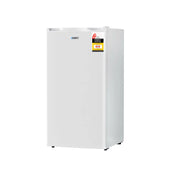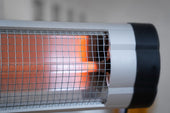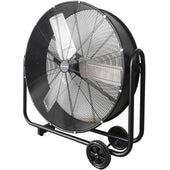Understanding the Importance of Fuel & Exhaust Systems
The fuel and exhaust systems are essential for the efficiency, safety, and environmental performance of any vehicle. These systems work together to ensure that fuel combustion properly powers the engine while expelling harmful gases responsibly.
- Fuel System Importance: The fuel system, including components like the fuel pump, injectors, and tank, delivers the precise amount of fuel needed for optimal engine performance. Proper functionality prevents issues like misfires, reduced mileage, and engine stalls.
- Exhaust System Role: The exhaust system, comprising parts such as the catalytic converter and muffler, reduces noise, filters harmful emissions, and maintains environmental compliance.
Understanding these systems helps identify problems earlier, preventing costly damage.
The Interplay Between Fuel Quality and Vehicle Performance
Fuel quality plays a significant role in determining how efficiently a vehicle operates. Poor-quality fuel can lead to engine knock, clogged injectors, and reduced combustion efficiency. High-grade fuel ensures smoother acceleration, better mileage, and fewer emissions due to its cleaner burn properties.
Factors Impacting Vehicle Performance
- Octane Rating: Higher octane ratings reduce the risk of pre-ignition or knocking, particularly in high-performance engines.
- Impurities in Fuel: Contaminants or water can affect combustion, potentially causing power loss or stalling.
- Additives: Premium fuels often include additives that clean the engine and minimise deposit build-up.
Regularly checking fuel quality and opting for reliable sources can prevent long-term issues while ensuring peak vehicle performance.
Optimising Your Fuel System: Cleaning and Maintenance Tips
Proper care of the fuel system is vital for maintaining engine efficiency and preventing costly repairs. Regular inspection for dirt, debris, and moisture accumulation can keep the system running smoothly.
- Use quality fuel additives: These help prevent carbon build-up and clean injectors, improving combustion efficiency.
- Replace fuel filters routinely: A clogged filter restricts fuel flow and strains the engine. Follow the manufacturer's replacement schedule.
- Inspect fuel lines for leaks: Cracks or loose connections can lead to fuel wastage and pose safety hazards if unnoticed.
- Clean the injectors periodically: Professional cleaning or using injector-cleaning additives can restore optimal spray patterns.
- Drain water from diesel systems: Water separators should be checked and emptied regularly to prevent engine stalling.
Frequent maintenance ensures optimal performance and a longer lifespan for the fuel system.
Exploring Advanced Fuel Additives for Enhanced Efficiency
Advanced fuel additives play a pivotal role in optimising engine performance and fuel efficiency. These chemical compounds are designed to improve fuel combustion, reduce engine deposits, and minimise harmful emissions. By addressing common issues such as clogged injectors and carbon build-up, they ensure smooth engine operation.
Key benefits of advanced fuel additives include:
- Improved Combustion: Enhances the burn rate, providing better mileage.
- Cleaner Engine Parts: Prevents residue accumulation in fuel injectors and valves.
- Emission Reduction: Decreases the release of pollutants into the atmosphere.
Careful selection of additives tailored to specific fuel types and vehicle needs is essential. Regular usage promotes long-term efficiency and ensures engines remain in peak condition.
Upgrading Your Exhaust System: Benefits and Considerations
Upgrading an exhaust system offers improved performance, efficiency, and sound quality. A high-flow or performance exhaust enhances engine efficiency by reducing backpressure, which can boost horsepower and fuel economy. Stainless steel systems provide increased durability, resisting rust and corrosion.
When considering an upgrade, compatibility with the vehicle is crucial. Custom or aftermarket systems must align with the engine type and emission standards. Sound levels should also be reviewed, as excessively loud exhausts may violate local noise regulations.
Budget constraints play a significant role. Quality systems may require a higher upfront investment but offer long-term savings through enhanced durability and performance.
The Role of Air-Fuel Mixture in Performance Tuning
The air-fuel mixture plays a critical role in an engine's performance and efficiency. It must be balanced to ensure optimal combustion. A lean mixture, where there is excess air, can lead to overheating and poor acceleration. Conversely, a rich mixture with excess fuel may cause carbon build-up and increased emissions.
Performance tuning involves adjusting the air-fuel ratio to match driving conditions and engine requirements. Variables such as altitude, temperature, and fuel quality can influence this balance. Modern vehicles use electronic control units (ECUs) to regulate the mixture automatically, but incorrect calibration or sensor failures can disrupt the process.
Regular Diagnostics to Identify Fuel & Exhaust Issues
Regular diagnostics are essential for detecting potential fuel and exhaust system problems early. A professional diagnostic check can uncover hidden faults, such as clogged fuel injectors, faulty oxygen sensors, or damaged catalytic converters. Technicians utilise specialised tools, like fault code readers, to monitor engine performance and emissions.
Common indicators include warning lights, rough idling, or reduced fuel efficiency. Routine inspections of hoses, seals, and connections help pinpoint wear or leaks. Additionally, testing exhaust emissions ensures compliance with environmental standards. By incorporating periodic diagnostics, vehicle owners can prevent costly repairs and ensure efficient functioning of both fuel and exhaust systems.
How To Choose the Right Exhaust Headers and Mufflers
Selecting appropriate exhaust headers and mufflers requires an understanding of their performance impact, compatibility, and design. Exhaust headers play a crucial role in minimising backpressure, allowing exhaust gases to escape efficiently. When choosing headers, one should consider the material (such as stainless steel for durability), design (long-tube for performance or shorty for compact spaces), and engine compatibility.
For mufflers, factors like noise levels, airflow efficiency, and fitment are pivotal. Options include chambered, turbo, or straight-through mufflers, each offering varying sound levels and performance. Researching brand reputation and consulting vehicle-specific requirements ensures optimal functionality and proper fit for the engine and chassis.
Boosting Exhaust Flow with Performance Enhancements
Improving exhaust flow can significantly enhance vehicle performance, fuel efficiency, and engine longevity. Performance enhancements typically focus on upgrading exhaust components to reduce restrictions and optimise airflow.
Key modifications include:
- Installing high-flow catalytic converters: These allow gases to escape quicker while maintaining emissions compliance.
- Replacing restrictive stock mufflers with performance-grade mufflers: This reduces backpressure for smoother exhaust flow.
- Upgrading to larger-diameter exhaust pipes: Wider pipes can handle increased gas volume, boosting power.
- Adding an aftermarket exhaust header: This improves how exhaust gases exit the engine, enhancing overall efficiency.
Proper installation and maintenance of these upgrades are vital to maximise benefits without compromising vehicle reliability or emissions standards.
Eco-Friendly Tips for Fuel and Exhaust Optimisation
Reducing emissions and enhancing fuel efficiency not only benefits the environment but also ensures smoother vehicle performance. Drivers can start by choosing high-quality, low-carbon fuels that burn cleaner and reduce exhaust pollution. Ensuring the engine is regularly tuned helps optimise combustion and prevents excessive fuel consumption.
Tyre maintenance is another crucial factor, as underinflated tyres increase drag and fuel usage. Using exhaust controls like catalytic converters or filters can significantly minimise harmful emissions.
Regularly inspecting the exhaust system for leaks and damages contributes to improved air quality. Following these practices will help maintain an eco-friendly vehicle operation.



















































